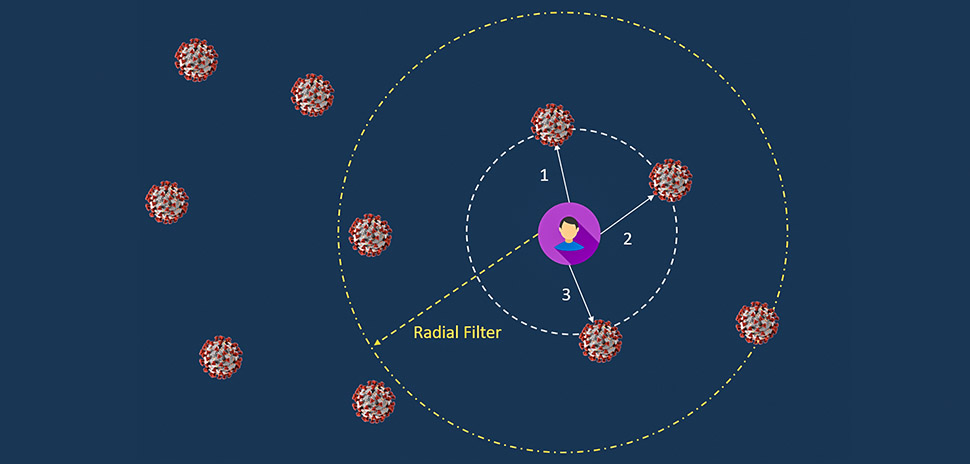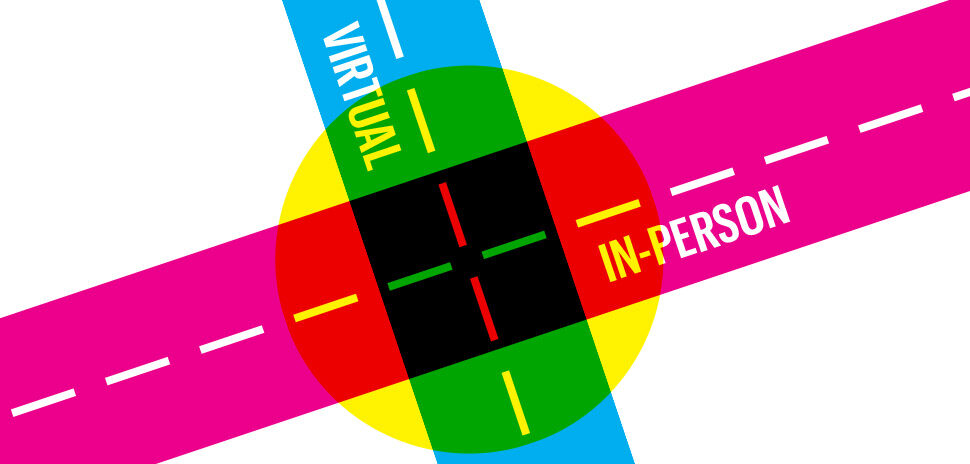Dallas’ Parkland Center for Clinical Innovation (PCCI) has released its own mobile application to help people in Dallas make informed choices about potential COVID-19 exposure.
The MyPCI App, which is exclusive to Dallas County, is a new secure, cloud-based tool that provides an on-demand, location-based personal risk assessment. It’s free to register and use, and doesn’t require any personal health information to be uploaded. It also won’t track your mobile phone data, according to PCCI.
“We have been pleased throughout this pandemic to be partnering with PCCI so that we can use their cutting-edge technology and data applications to address COVID-19,” Dr. Philip Huang, MD, MPH, the director of Health and Human Services for Dallas County, said in a statement. “This latest tool is another example of how Dallas County benefits from the tremendous resources and partnerships we have here.”
The technology is born from PCCI’s goal to give Dallas County residents the best tools and information that could potentially slow the number of COVID-19 cases. PCCI is a not-for-profit organization affiliated with Parkland Health & Hospital System that works to improve healthcare for vulnerable populations via advanced data science and clinical experts.
As the vaccines slowly roll out, PCCI was looking for a way to mitigate the spread—as quickly as possible.
“Proximity continues to remain one of the most important factors in pandemic management and personal protection,” Steve Miff, PhD, PCCI’s president and CEO, said in a statement. “While we wait to receive a vaccine, we can control our own risk of exposure and help bend the curve.”
Dr. Miff describes the MyPCI App as a simple-to-use tool that gives a better understanding of the COVID-19 risks around you. Once a user has a better understanding of the threats in their vicinity, it reinforces the need for social distancing, face covering, and hand washing, he says.
The app combines a sophisticated machine learning algorithm, geomapping, and hot-spotting technology that uses daily data from Dallas County Health and Human Services on positive COVID-19 cases and the population density in a neighborhood.
A ‘dynamic personal risk score’ is then generated based on a user’s density and distances to those nearby who are infected.
PCCI based the app on its technology that has already been proven in the field, according to a statement. The PCCI COVID-19 Proximity Index, which was designed for the Parkland Health & Hospital System, analyzes the proximal risk score of patients who were scheduled for in-person medical appointments, and identifies them as having a high or very high risk.
If the risk score was in the dangerous range, the appointment was changed from in-person to telephonic or virtual, and timely screening and a care plan was offered proactively. According to PCCI, this protected both the patient and health care provider.
It was also a highly successful program: Data from more than 500,000 Parkland patients shows that an individual who had a high or very high proximity index had a seven times higher risk of ending up being infected.
That prompted the development of the MyPCI App.
“While we are very encouraged by the vaccination initiatives, they will take time, which means now is not the time to let our guard down,” Dr. Miff said. ”The pandemic is still raging, so we need to use personal information and awareness about our own individual and household risks to reinforce and manage the things that we can control while we wait for broad implementation of vaccines.”
An early, enterprise-wide adopter of the app is the Diocese of Dallas Catholic Schools, which wanted a way to better inform its students’ parents.
Now, parents who use the MyPCI App can receive information that allows them to collaborate with teachers and administrators to keep their kids safe. That amounts to more than 61,000 students in 38 different schools, many in Dallas County.
“We are always looking to innovate and partnering with PCCI on this initiative is a great opportunity to empower our parents and families with information that makes then engaged partners with our team in containing the virus and keeping our staff and students safe,” Matt Vereecke, superintendent of Schools, Catholic Diocese of Dallas, said in a statement.
But, PCCI has also made the app available to the public to ensure all Dallas County residents can “empower themselves with better information.” Users can download the app here and register using the code GP-7xI6QT.
“I am pleased that PCCI is making this service available to the public, as it uses the same tool which has helped us at Parkland better care for the Dallas County community by providing important information that indicates one’s risk for developing COVID,” Brett Moran, MD, Parkland’s chief medical informatics officer, said in a statement. “Parkland and PCCI have been using these algorithms from early in the pandemic to effectively provide outreach to high-risk individuals which helps them as well as their family, friends and the community at large.”
![]()
Get on the list.
Dallas Innovates, every day.
Sign up to keep your eye on what’s new and next in Dallas-Fort Worth, every day.






























